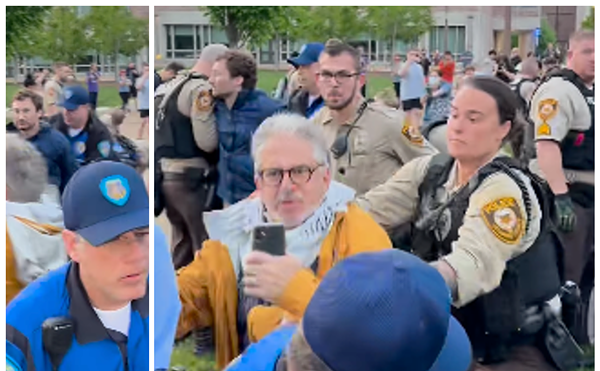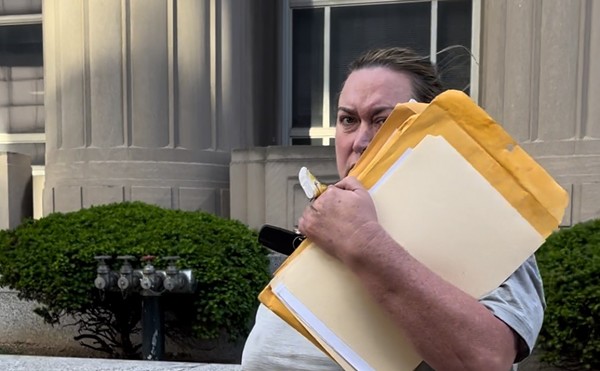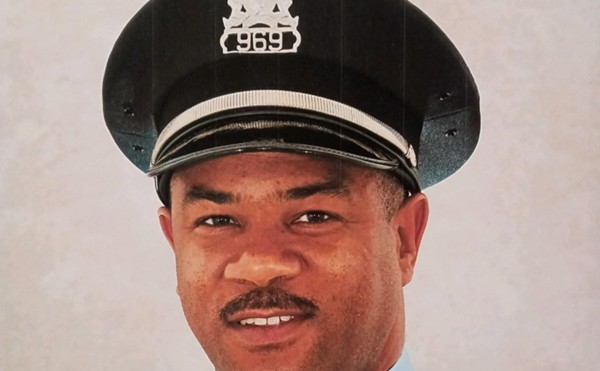Stated cause of death doesn't sound likely: Passing through St. Louis, I read the story of Martina Paulin [Laura Higgins, "Last Call," RFT, Nov. 22]. My first thought, when reading the description of her injuries and cause of death, was "Hmmm, sounds like bullshit to me." And my second thought was "I hope they are obtaining an independent autopsy to confirm these bizarre and highly unlikely findings."
As a medical professional, I have worked in trauma and spinal-cord-injury cases for several years and have never seen the aforementioned injury, ever. The fall, possibly. But severance of a well-protected artery, as opposed to the much more common subdural hematoma, after a fall? This would point to negligence on the part of the police, as opposed to a self-inflicted discrete injury being overlooked. Either way, they screwed up big, and it sounds like they just want to minimize the fallout. How tragic.
Catherine L. Cavallo
Houston, Texas
G.I. Blues
Military should worry about pay and benefits, not access: It's really too bad that the Department of Defense has decided to bully Washington University School of Law and other law schools into permitting the military to recruit law students on campus [Safir Ahmed, "Don't Ask, Don't Tell, Don't Fight," RFT, Nov. 22]. The refusal by the law school to allow military recruiters is an exercise of the school's right to freedom of association. The DOD's threat to withhold Pell grants from undergraduates in response is petulant and short-sighted.
As a recent law-school graduate, I received very good information from the WU Career Services office about opportunities as a military lawyer. They were supportive and helpful in response to my inquiries. Alas, I found that opportunities in the JAG were not worth pursuing. The military recruiter informed me that JAG officers, unlike other recruits, are not eligible for student-loan forgiveness. (As a law-school graduate, my loan debt is over $75,000.) New JAG officers are commissioned as second lieutenants -- with an amazingly low starting salary. (Entry-level prosecutors and Legal Services attorneys make more money.) If you fail to pass the bar, the military reassigns you to a nonlegal job. JAG officers are held to the same physical standards as other soldiers. Basically, a career as a military attorney offers rotten benefits, rotten pay and a mandatory physical-fitness standard.
Even if the JAG recruiters had interviewed at the law school, I doubt that many of my classmates would have found work as a military attorney attractive. If the DOD is concerned about the ability of the military to attract good lawyers, maybe they should start offering better benefits to military attorneys.
Dawn Kamadulski O'Leary
O'Fallon, Ill.
We've been aggressively fighting the military policy: I would like to clear up some of the facts you included in your recent article regarding Outlaw.
First, we are not simply a "group of gay and lesbian students." Outlaw is an educational, political and social alliance of law students interested in working with Washington University and the surrounding community toward fostering and maintaining an environment that is supportive, positive and safe for individuals of sexual and gender diversity. In striving for a greater understanding of sexuality and gender issues at the law school and within the affiliated communities, Outlaw aims at addressing the legal issues associated with sexual and gender diversity and provides resources and support for social activism.
Second, Outlaw has been actively protesting the military recruiters from the very beginning. We were instrumental in bringing the issue to the law-school students and faculty. We have, in fact, written several letters to the community. The letter you referred to was a legal memo addressing the legality of the interim rule. This memo was provided to the faculty so that they would be persuaded to seek the possibility of litigation. With that memo, there was a letter of protest. We have continued our activism by working with the undergraduate campus community in a large-scale letter-writing campaign to Chancellor Wrighton. Outlaw has been the most vocal group within the law school this year. Our protest does not merely stop at the door by waving flags and banners. We want public outcry about this issue, but, more importantly, we want the issue resolved in our favor.
Your article suggested that Outlaw has been apathetic by engaging in a "battle over technicalities." Technicalities make up the law. I wish you had taken the time in writing your article to contact Outlaw before commenting on our level of activism. You could have perhaps focused on the positive reality that Washington University is the last school to hold out and the only one to even consider the possibility of litigation. This is in no small part due to Outlaw's efforts.
T.J. Hill
President, Outlaw





